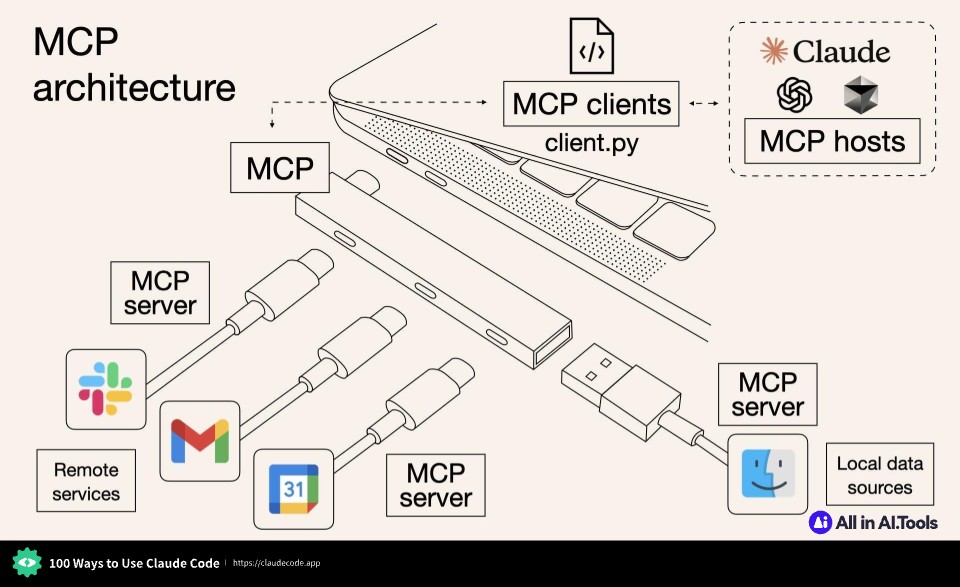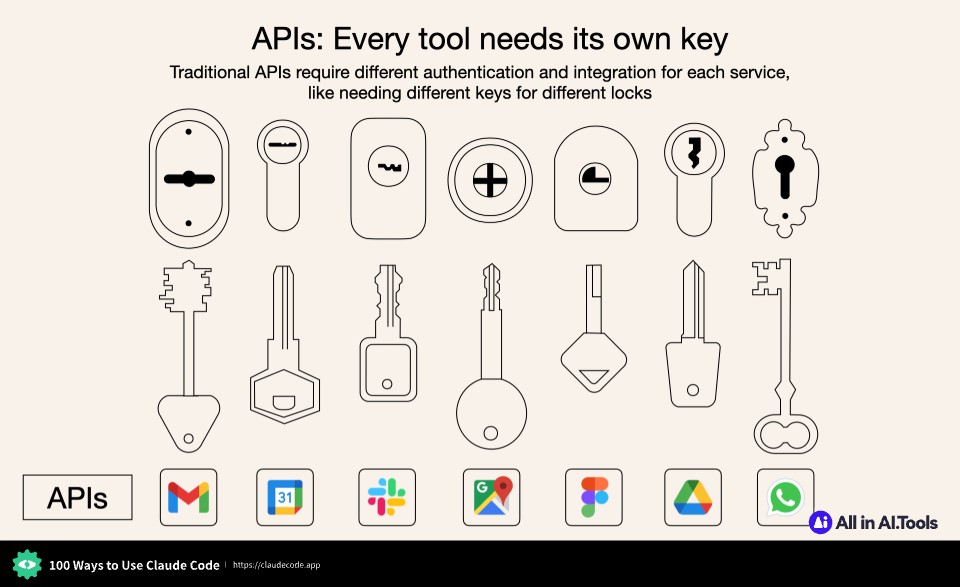Discover and integrate MCP servers to extend Claude's capabilities
This is a tool to scrape/download images and data from Vinted & Depop using the API and stores the data in a SQLite database.
Example node MCP server. When a user asks the agent for the passphrase, a special code phase is provided.
A secure Model Context Protocol (MCP) server providing filesystem access within predefined directories
BigGo MCP Server utilizes APIs from BigGo, a professional price comparison website.
A powerful multi-database server implementing the Model Context Protocol (MCP) to provide AI assistants with structured access to databases.
基于 FastAPI 和 MCP(模型上下文协议),实现 AI 模型与开发环境 之间的标准化上下文交互,提升 AI 应用的可扩展性和可维护性。
An advanced sequential thinking process using a Multi-Agent System (MAS) built with the Agno framework and served via MCP.
A Model Context Protocol (MCP) server for providing code context from git repositories
A powerful Model Context Protocol server for LinkedIn API integration
A Model Context Protocol (MCP) server that enables AI assistants to interact with IDA Pro for reverse engineering and binary analysis tasks.
Super Windows CLI Server, Fixed this "https://www.mcpmarket.com/server/super-windows-cli" as it is a mess to run on windows.
Two Truths and a Twist: The world's first Model Context Protocol game
Connect Claude to Linear project management systems. Retrieve, create, and manage issues and projects seamlessly.
NOT for educational purposes: An MCP server for professional penetration testers including nmap, go/dirbuster, nikto, JtR, wordlist building, and more.
MCP that allows us to load our bruno collection and have AI call it on our behalf
Serveur MCP avancé pour Firebase Firestore avec support pour toutes les fonctionnalités avancées
Um servidor Model Context Protocol (MCP) que fornece ferramentas para interagir com placas Trello.
Servidor MCP TESS para integração de agentes - Implementação do protocolo MCP para serviços TESS AI
The Ultimate Model Context Protocol (MCP) Server, providing unified access to a wide variety of useful and powerful tools.
Collection of apple-native tools for the model context protocol.
Open Models MCP for Blender Using Ollama
为 Cursor、Windsurf、Cline 和其他 AI 驱动的编码工具提供访问飞书文档的能力,基于 Model Context Protocol 服务器实现。
Tools for seamless integration of different systems and services.
Cloud infrastructure and deployment management tools.
AI-powered tools for creative design workflows across 3D and 2D mediums.
AI-powered tools for product development, design review, and performance monitoring.
Tools for monitoring, analytics, and operational efficiency.


Explore Claude Cowork, Anthropic's groundbreaking AI agent built on Claude Code foundations. Discover how it enables file access, document creation, and task automation for everyone—not just developers. Learn how it integrates with MCP servers and extends Claude Code capabilities.
Explore the major [Claude code](https://claudecode.app) 2.1.1 update featuring 109 CLI improvements, automatic hot reload for skills, sub-agent execution, enhanced security, performance optimizations, and smarter prompt behavior. Learn about all the new features and improvements.
Master the art of prompting Claude with Anthropic official guide. Learn 10 proven strategies to 10x your Claude Opus and Sonnet 4.5 performance. Discover how better prompts lead to better results with practical examples and real-world applications.
Deep dive into sophisticated SSH workflows for Claude Code power users. Learn zero-friction authentication, session management, and advanced techniques that transform your vibe coding experience.
MCP (Model Context Protocol) is an open protocol that standardizes how applications provide context to LLMs. Think of MCP like a USB-C port for AI applications, providing a standardized way to connect AI models to different data sources and tools.
MCP Servers are lightweight programs that expose specific capabilities through the standardized Model Context Protocol. They act as bridges between LLMs like Claude and various data sources or services, allowing secure access to files, databases, APIs, and other resources.
MCP Servers follow a client-server architecture where a host application (like Claude Desktop) connects to multiple servers. Each server provides specific functionality through standardized endpoints and protocols, enabling Claude to access data and perform actions through the standardized protocol.
Yes, MCP Servers are designed with security in mind. They run locally with explicit configuration and permissions, require user approval for actions, and include built-in security features to prevent unauthorized access and ensure data privacy.